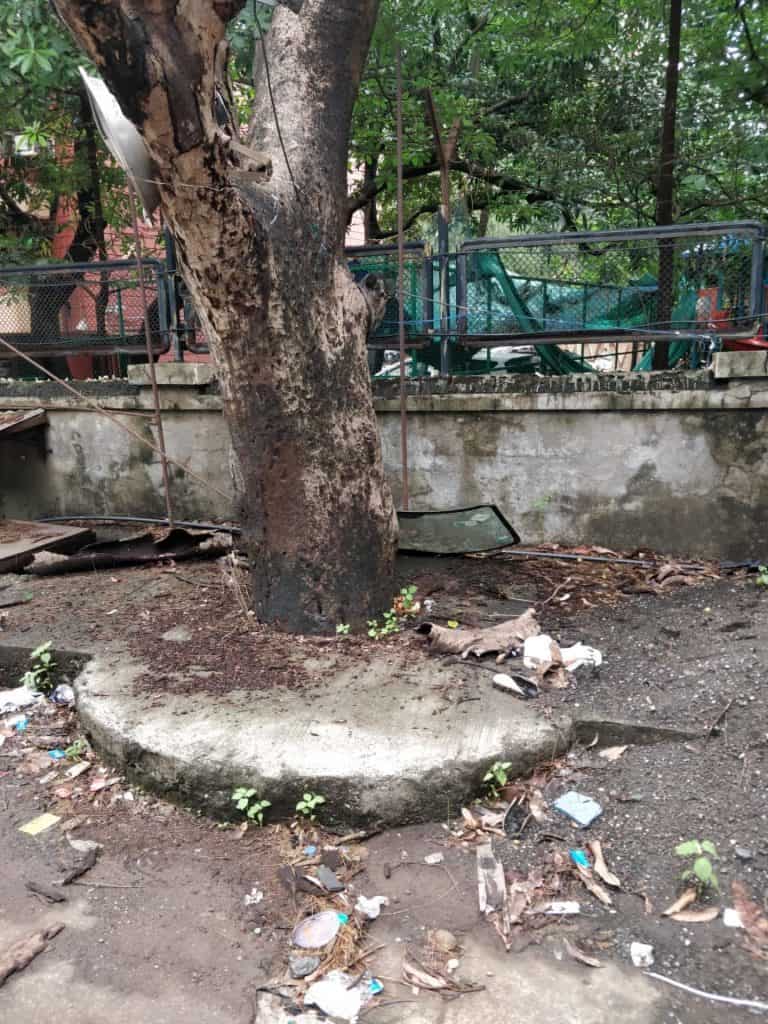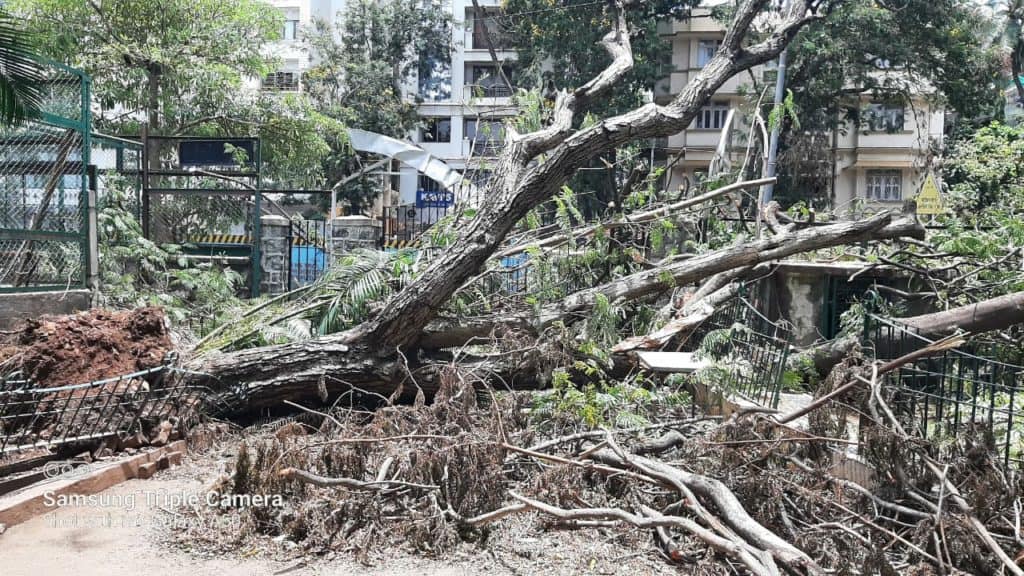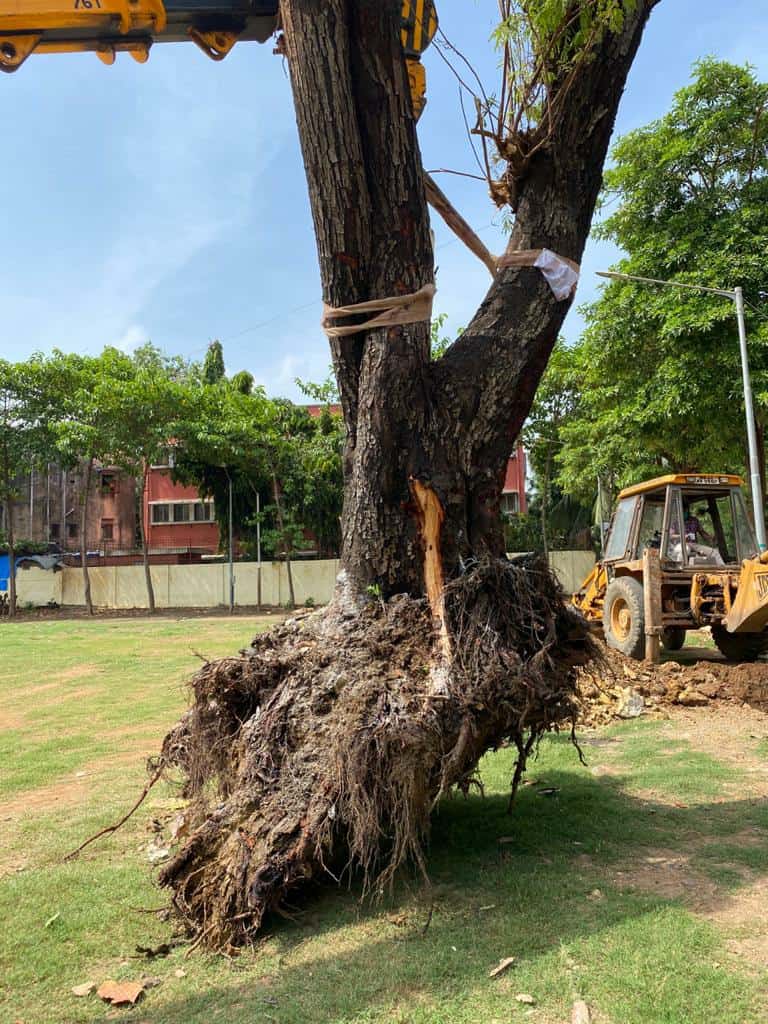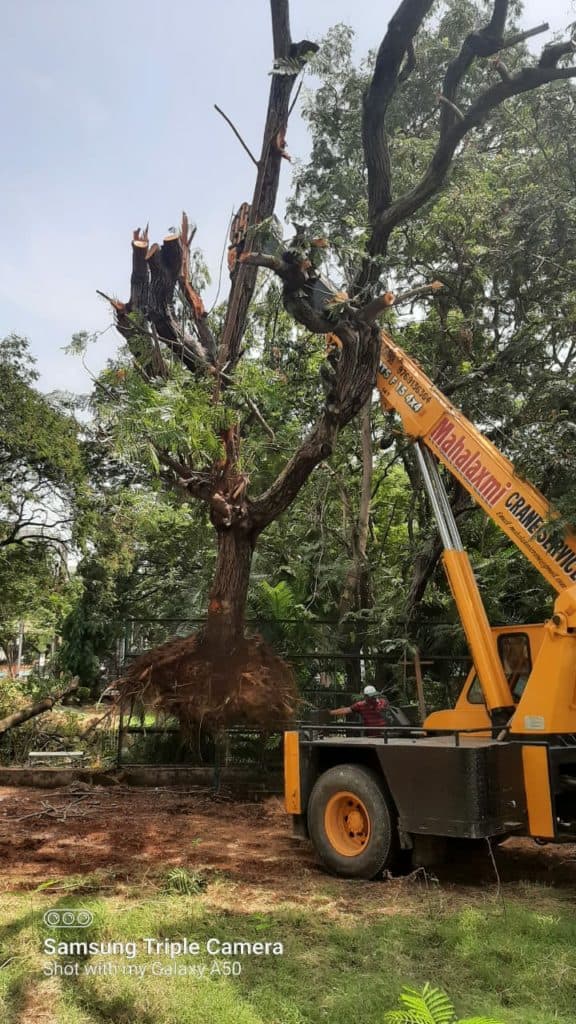Mumbai lost about 812 roots including 308 trees in public spaces within two days of the Tauktae cyclone that ravaged the city between May 16-17, said the Brihanmumbai Municipal Corporation.
Since then, over a thousand trees fell in subsequent rains, according to Ramakant Biradar, deputy municipal commissioner (gardens).
Activists warned that more trees will fall due to faulty policies such as allowing concretisation near tree bases, allowing construction of concrete structures to come up close to trees, following unscientific and improper pruning that endangers life of trees.
Mumbai’s per capita tree cover is 0.28 or less than one tree for four persons. The city is set to lose 40,000 more trees out of the existing 29,75,283 (as per 2018 tree Census) to make way for various large infrastructure projects like the metro lines.
The city has one of the worst air quality indices among metro cities in the country and is the least green metropolis in the country with just 12.3% of green cover.

The BMC has pointed out that over 70% of the trees were non-native species, which take time to adjust to Mumbai’s local ecology.
Read more: Wrath of the seas: cyclones during the lockdown
Concrete concrete everywhere
Activists say one of the major causes of trees getting uprooted during heavy showers are because tree bases are concretised from all sides, leaving trees with shallow basins with no space to hold on to the ground. “Many of the roots of the trees fallen in the recent cyclone were found to have concrete and even tar stuck on its roots. The roots are not able to go deep nor are they able to spread laterally due to concrete structures around. Sometimes roots get infected when they get tangled in concrete and other debris,” says Sanjiv Valsan, co-ordinator of the Ped Lagao Ped Bachao Movement, which has been saving uprooted trees. They have managed to successfully replant about 20 trees and are still in the process of saving more.

Deputy Municipal Commissioner (Gardens) Ramakant Biradar admits that the suffocating concretisation around the tree bases is a key reason for weakening of trees. “Roots are unable to penetrate deeper due to presence of salty water. Henceforth, only native trees with smaller girth will be identified and allowed to be planted in restricted spaces near concrete structures. While big native trees with long roots will be allowed only in spacious surroundings,” Biradar said.
Director of NGO, Vanashakti Stalin Dayanand wrote to the Municipal Commissioner Iqbal Chahal stating that trees were being killed due to the city’s mad race to concretise its roads by depriving them of soil, nutrients and anchorage. Dayanand said that giant trees on roads ended up standing in shallow tree basins in “flower pot like conditions” with no depth or lateral space to anchor itself and no soil for trees to grip and stand firm.

In 215, Vanashakti had approached the National Green Tribunal (NGT), which ordered the BMC to de-concretise all tree bases within one metre radius in phases and report back to the NGT within six weeks. In its response, the BMC said that around 11,790 trees in the city had been de-concretised by 2015.
However, since over 800 trees fell due to poor ground support for roots, Vanashakti now plans to approach the NGT in the same case to seek its intervention again.
Biradar said that his department is in the process of de-concretising tree bases to give trees breathing spaces. The BMC is contracting private organsations for Rs 150 crore to de-concretise tree bases in the city. Activists say that programme is yet to show significant results.

Valsan identifies secondary reasons for tress falling like unscientific, improper trimming as well as random diggings by various utilities. “Tree pruning contractors having a stake in commercially selling woods and hence chop trees haphazardly, literally sparing only the trunk or engaging in careless, lopsided trimming thereby creating an imbalance to the tree and thus susceptible to falls,” said Valsan.
To avoid this, he suggested that contractors be incentivised to have stakes in saving trees and thus be motivated to retain trees rather than chop them off.
The Bharatiya Janata Party had alleged in February that BMC had shortlisted desilting and transport firms with no botanists or even arborists on board for tree pruning contract works, thus endangering trees with their unscientific hacking.
Don’t cut the trees
Soon after trees fall, the BMC’s first response was to simply chop off the remains of the tress, so that roads are cleared. They also put out a public note calling citizens to prune dangerous trees or branches in private properties and facilitating their permissions on the BMC app.
Of the total 29,75,283 trees in Mumbai as per the 2018 census, about 15,63,701 trees are in private properties.
Moved by the various citizens’ pushback to save trees, the BMC officials at many wards are now assisting citizens with the task by supporting them with either expertise, manpower or machinery in a few places, but that is few and far in between.
Following large scale tree falls post -Taukte cyclone, many public spirited citizens came forward to help revive and replant trees around them. “I had no idea about transplanting or replanting trees but now have successfully managed to revive three fallen trees in my neighbourhood Santacruz with the help of support from known and unknown citizens and our local corporator Alka Kerkar,” says Neil Lobo, a Mumbai resident.
When a over-50 year Peltoforum tree fell in his neighbourhood, his desire to revive the tree resonated with others on a Whatsapp group and helped connect him to many other like-minded citizens similarly trying to save their uprooted trees. “Our corporator helped us get the permissions to replant the fallen tree in a neighbourhood ground while citizens chipped in to bear the costs of a JCB and hydraulic crane machines needed for the task, while an aborogist helped with the technical support. Unknown people connected and offered their support,” said Lobo.
Buoyed up by the experience, he then similarly took initiative to replant two more fallen trees at the Sacred Heart Church, Santacruz.
Also read: